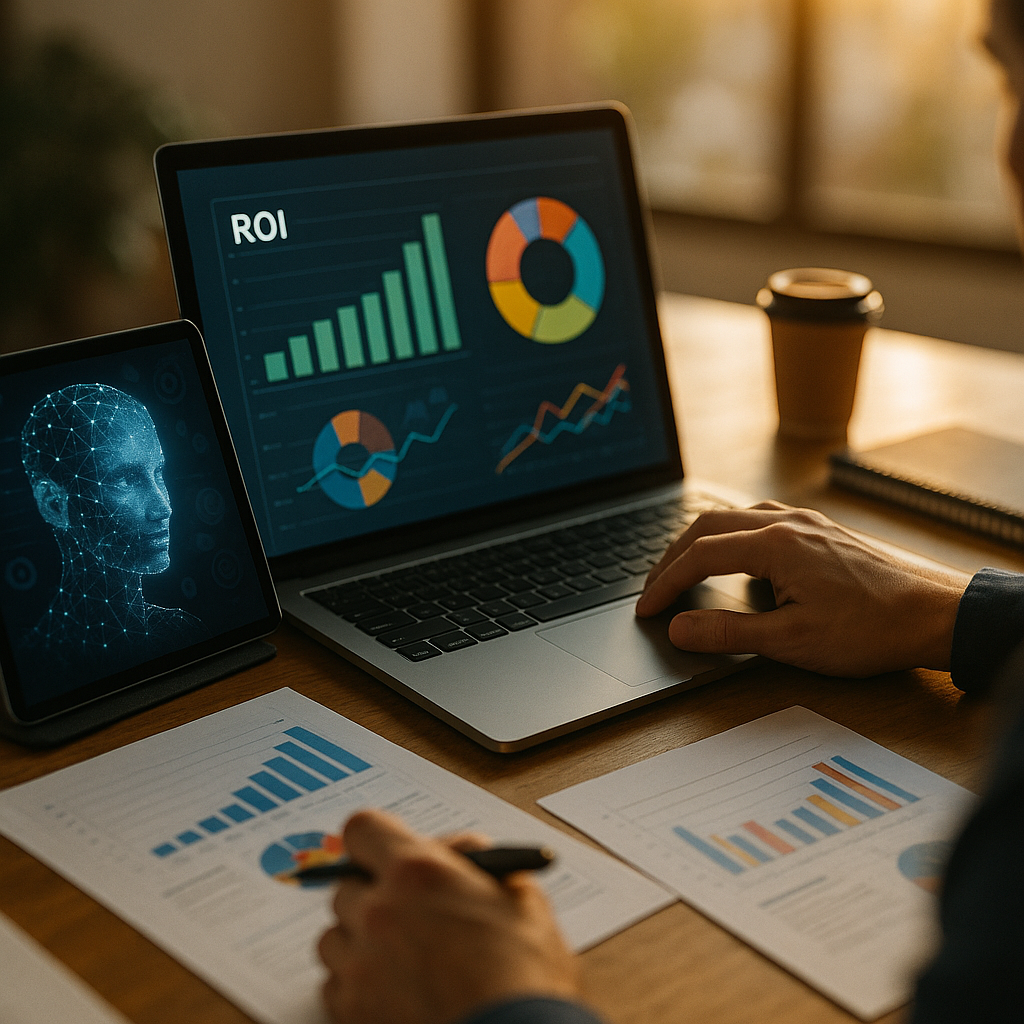Advanced AI workflows for marketing teams are revolutionizing campaigns and decision-making. Today’s marketers are leveraging robust automation, deep analytics, and content personalization powered by artificial intelligence. Learn how to implement next-level AI-driven processes that reduce manual work, boost ROI, and catalyze growth—so your team can compete at the cutting edge of digital marketing in 2025.
Streamlining Campaign Management with AI Automation
The complexity of multi-channel campaigns demands efficiency. Sophisticated AI automation tools now handle repetitive tasks such as lead scoring, audience segmentation, and email scheduling—freeing human talent for strategy and creativity. These platforms use machine learning to analyze performance data in real time, continually refining campaign tactics based on what’s actually working.
Consider the AI-driven campaign managers now available in 2025: they integrate with CRM systems, programmatic ad platforms, and analytics dashboards, creating an orchestrated workflow. Marketers set high-level goals, and the AI recommends or implements schedule changes, reallocates budget, and surfaces actionable insights—often before teams even recognize a trend.
Leveraging Predictive Analytics for Consumer Insights
Significant advances in predictive analytics are empowering marketing teams to understand not only what customers do, but what they are likely to want next. AI-driven analytics platforms stitch together behavioral data from web visits, social interactions, and purchase history to forecast emerging trends and consumer preferences.
In 2025, these AI models interpret enormous datasets—spotting patterns invisible to human analysts. Marketing teams can confidently fine-tune messaging, anticipate demand spikes, and align inventory with real-time market shifts. Companies are also applying sentiment analysis to social listening data, gauging emotional responses that guide campaign pivots or creative direction changes before public perceptions harden.
Personalizing Content at Scale Using AI
Personalization remains a top driver of marketing success. AI content personalization technologies now go beyond simple name insertion or product recommendations. In 2025, AI can generate tailored emails, ads, and landing pages for thousands—or millions—of unique recipients, based on a sophisticated understanding of each person’s journey and needs.
Natural language processing (NLP) and advanced recommendation engines deliver hyper-relevant content by adapting tone, format, and delivery timing. For example, an AI might write different headlines for two subscribers with similar demographics but divergent browsing behaviors. Marketers control brand voice and guidelines, while the AI continuously tests, optimizes, and refines output for the highest engagement.
Integrating AI-Powered Workflow Tools for Team Collaboration
Modern marketing teams are cross-functional and often hybrid or remote. AI workflow tools keep collaboration smooth and deadlines on track by automating handoffs, approvals, and asset management. Platforms like collaborative project boards with embedded AI now proactively notify stakeholders of next steps, flag blockers, and even summarize meeting transcripts for actionable follow-ups.
Seamless integrations enable these AI systems to synchronize creative drafts, design assets, data reports, and performance metrics in a single shared interface. Teams can access centralized knowledge hubs—updated by AI as new information emerges—eliminating version confusion and allowing members to focus on value-adding work rather than administrative overhead.
Ensuring Data Privacy and Ethical Use of AI in Marketing
With great automation comes great responsibility. Marketing teams must navigate AI data privacy and ethics concerns as they deploy advanced workflows. In 2025, new global regulations require transparent data collection and explainable AI outputs. Platforms now provide built-in compliance dashboards and audit logs, ensuring all customer data is managed responsibly.
Teams prioritize user consent, employ privacy-centric architectures, and maintain clear records on how algorithms make decisions. Marketers who champion these practices earn consumer trust, reduce regulatory risks, and turn responsible AI use into a powerful brand differentiator. Ongoing education—both for human staff and AI systems—is essential to stay ahead of evolving guidelines and public expectations.
Measuring ROI: Proving the Value of AI-Driven Marketing Workflows
Justifying the investment in AI workflow ROI remains critical for marketing leaders. In 2025, AI-powered analytics offer detailed attribution models, connecting each automated action or personalized touchpoint to revenue outcomes. These platforms can simulate “what-if” scenarios, revealing which processes deliver the highest impact.
Reporting dashboards combine real-time data visualizations with predictive insights, helping teams optimize spend and demonstrate clear returns to executives. The most successful marketing teams benchmark performance before and after AI implementation, document time saved, and build business cases for further automation based on hard evidence—not hype.
Conclusion: Advanced AI workflows empower marketing teams in 2025 to be faster, smarter, and more customer-centric. By strategically automating processes, leveraging predictive insights, and committing to ethical use, marketers can drive outsized results. Adapt these actionable strategies now to future-proof your marketing operation and gain a sustainable advantage.
FAQs about Advanced AI Workflows for Marketing Teams
-
What are advanced AI workflows in marketing?
They are automated, AI-driven processes that handle tasks such as campaign management, segmentation, personalization, analysis, and reporting. These workflows use machine learning, natural language processing, and data integration to deliver faster, more precise marketing outcomes.
-
How can AI personalization improve marketing ROI?
AI personalization tailors content and offers to each individual based on their behavior and preferences. This increases engagement, conversion rates, and customer loyalty, directly impacting ROI.
-
Is AI-driven marketing secure and compliant with data privacy laws?
Yes—modern AI tools are built with privacy and compliance in mind. They support features like data encryption, audit logs, and consent management, and are adaptable to evolving regulations in 2025.
-
What skills are needed for marketing teams to succeed with AI workflows?
Teams benefit from data literacy, creative thinking, and a willingness to learn new technologies. Understanding AI capabilities and ethical guidelines is essential for maximizing impact and maintaining customer trust.
-
How do I measure the success of AI in my marketing workflows?
Use AI analytics dashboards for real-time performance tracking, compare benchmarks pre- and post-automation, and link specific AI-driven actions (like personalized offers or automated campaigns) directly to revenue and engagement metrics.
